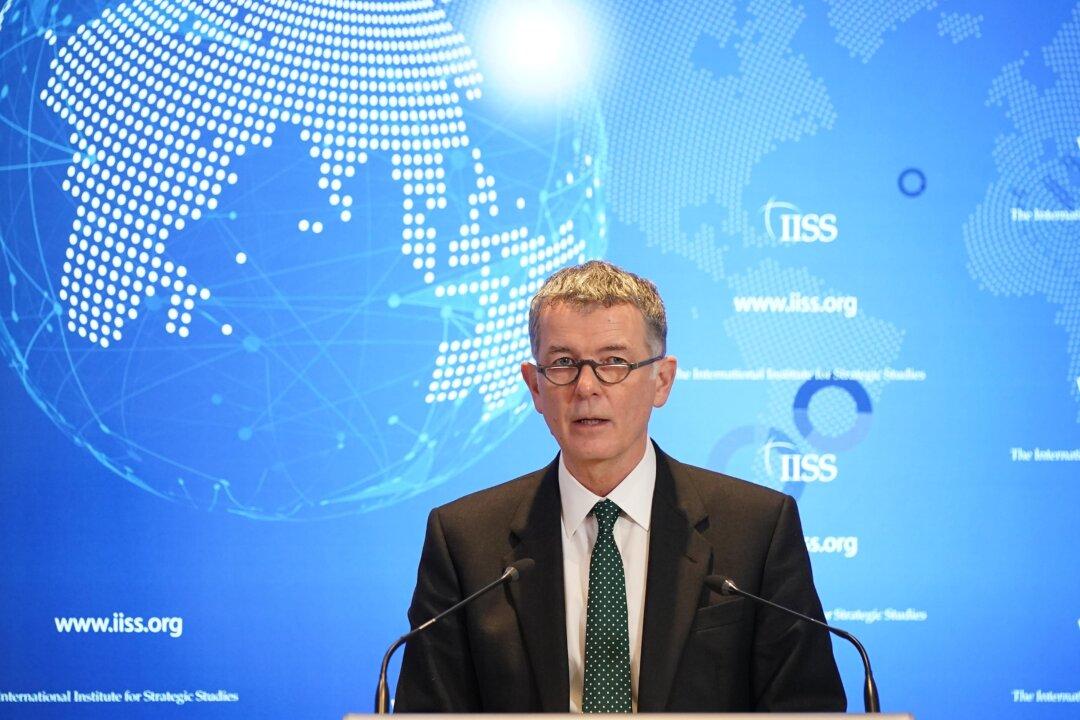The head of Britain’s MI6 intelligence agency said on Tuesday that the Chinese regime poses a “serious challenge” to global peace and has become the “single greatest priority” for his organisation.
Speaking at the International Institute for Strategic Studies (IISS) in London, MI6 chief Richard Moore listed China, Russia, Iran, and international terrorism as the “Big Four” priorities for Western intelligence communities, but stressed that “adapting to a world affected by the rise of China is the single greatest priority for MI6.”





